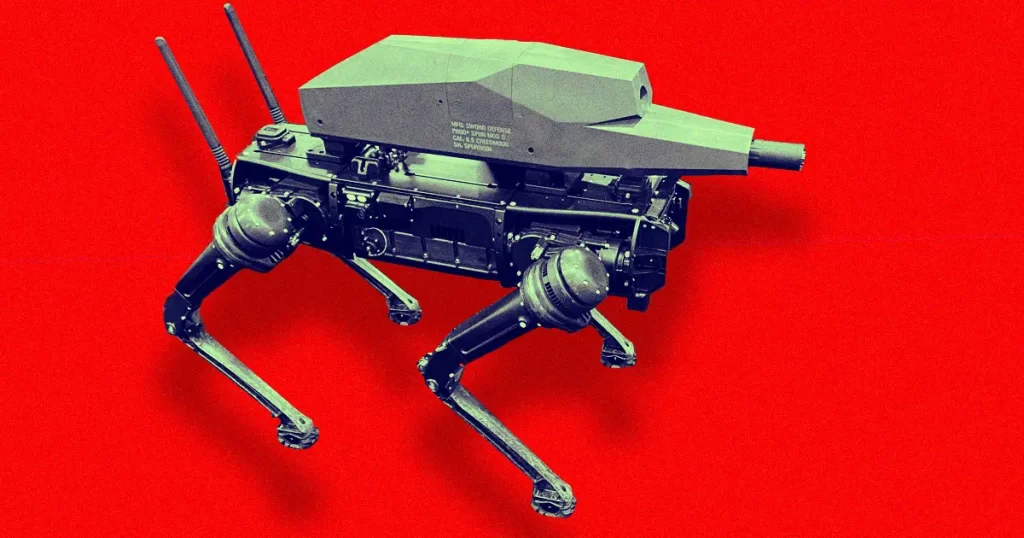Boston Dynamics is suing its rival that has been testing their four-legged robot dog at a US Air Force Base, claiming that two of Ghost Robotics’ four-legged unmanned ground vehicles infringe on the rights of seven of Boston’s parents.
The complaint includes photos snapped at 2020 and 2021 tests conducted by the US Air Force using Ghost Robotics’ semi-autonomous robot dogs at its Nellis base in Nevada. The base is used for air combat and tactical ground operations.
The suit notes that Boston Dynamics sent Ghost a letter on July 20, asking the company to review its patents. This was followed by multiple cease-and-desist letters. The filing then goes on to offer a fairly comprehensive catalog of alleged infringements.
While Boston Dynamics’ Spot robot has been deployed by law enforcement agencies like the NYPD, the company has been vocal in its opposition to weaponizing robots. Last month, it joined Agility, ANYbotics, Clearpath Robotics, and Open Robotics in penmanship an open letter condemning the practice. It noted, in part: “We believe that adding weapons to robots that are remotely or autonomously operated, widely available to the public, and capable of navigating to previously inaccessible locations where people live and work raises new risks of harm and serious ethical issues.” Weaponized applications of these newly-capable robots will also harm public trust in the technology in ways that damage the tremendous benefits they will bring to society.
Google sold Boston Dynamics to SoftBank in 2017 after just four years of steering the company, which missed key military contracts, suffered management turbulence, and had little prospect of winning revenue under its tutelage.
The Spot-maker promised in an open letter co-signed by five other robot makers earlier this month that it won’t allow its machines to be “weaponized” by either itself or its customers. Boston Dynamics wants a permanent injunction against further infringement and extra damages due to its claims of “wilful” infringement, although it didn’t put a dollar figure on this.

